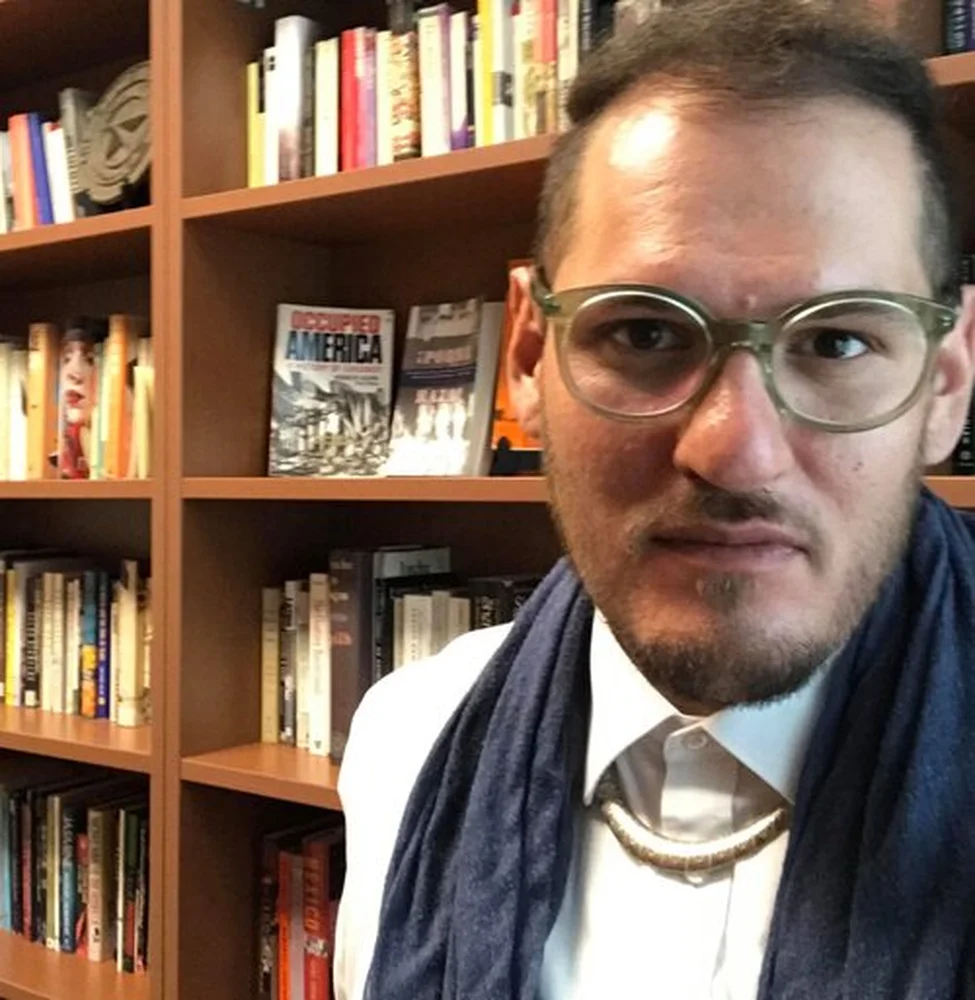
What can literature tell us about how people experience the law and how is the law like literature? Professor José A. de la Garza Valenzuela has been writing a book, Queer in a Legal Sense: Brown Citizenship and Other Lawful Fictions, that centers these questions to understand what books tell us about the world we legally occupy, and how legal texts, and their interpreters, use storytelling to enforce and create laws.
His book is an inventive combination of literary and legal studies that compares how queer Chicano literature represents migrant experiences with how queer migrants and residents are managed through migration policies and the legislation of sexuality. The law, he argues, produces fictional narratives that have real consequences and demonstrates the material impacts of storytelling in their legal and cultural enforcement. He looks at both how laws themselves contain stories and how laws are interpreted using storytelling to criminalize actions or people.
“Part of what I'm trying to do is say well, it's not like literature is like the law in terms of consequence. The law is like literature in terms of storytelling,” he said. “And so in a sense I try to theorize citizenship around the question of who gets to tell these stories, but also who gets to interpret how impactful, how valid, how consequential they might be.”
Born in Durango, Mexico, de la Garza Valenzuela’s interest in the law was influenced by his own immigration experiences and path to US citizenship. As a teenager, he had to help his family navigate the immigration system, which often meant reading and translating legal documents.
“A lot of people write about immigration as this kind of abstract thing. I'm writing about immigration as a process that literally has happened to me,” he said.
The book examines legal texts like the Matter of Toboso-Alfonso that show how the expansion of access for queer asylum seekers in 1994, for example, created a burden for them to prove their homosexuality to officials to obtain protections.
“Now you have to prove that you're homosexual in these very specific ways. You know, it's not just like, oh, I'm gay.... No, you have to be evidently gay. All of a sudden it becomes about performing a certain kind of recognizable homosexuality that makes you eligible for a particular form of the asylum . . . Sometimes freedom is not freedom, sometimes the ways our rights are made accessible create new measures against which we are assessed” he said.
He also covers books like John Rechy’s City of Night, Arturo Islas’ The Rain God, Michael Nava’s The Death of Friends, Rigoberto González’s Crossing Vines, and Jaime Cortez’s Sexile/Sexilio, alongside legal texts like the Purple Pamphlet, Boutilier v. INS, Bowers v. Hardwick, green cards, and the Immigration Reform and Control Act.
De la Garza Valenzuela was recently awarded the prestigious 2023 American Council of Learned Societies Fellowship, which allowed him to focus on completing the book this past year. The book is under advance contract with the University of Texas Press.
Now that the book is fully drafted, de la Garza Valenzuela has turned toward other projects. He’s begun conducting research for a project that will explore cult film and Chicano novels like What You See in the Dark by Manuel Munoz, which is set during the filming of Hitchcock’s Psycho. He wants to zoom out to understand what Munoz’s novel and others have to tell us about the material impacts of the production of culture. He’s also begun a project that will explore the archives of ballet dancer and visual artist Dom Orejudos.
A goal of his work is to expand the catalog of Chicano writers and artists that we think and talk about, and to honor the legacy of writers who’ve been around for decades.
“We have Chicano authors who’ve been writing for 70 years, in some cases,” he said. “We have people, like Rechy, who were writing alongside James Baldwin that are still alive and writing, you know. And so I think in a sense, I want us to recover not only their work, but recover their sense of legacy . . . I want to expand a little bit that catalog of who we can consider part of this pantheon of Chicano literature.”